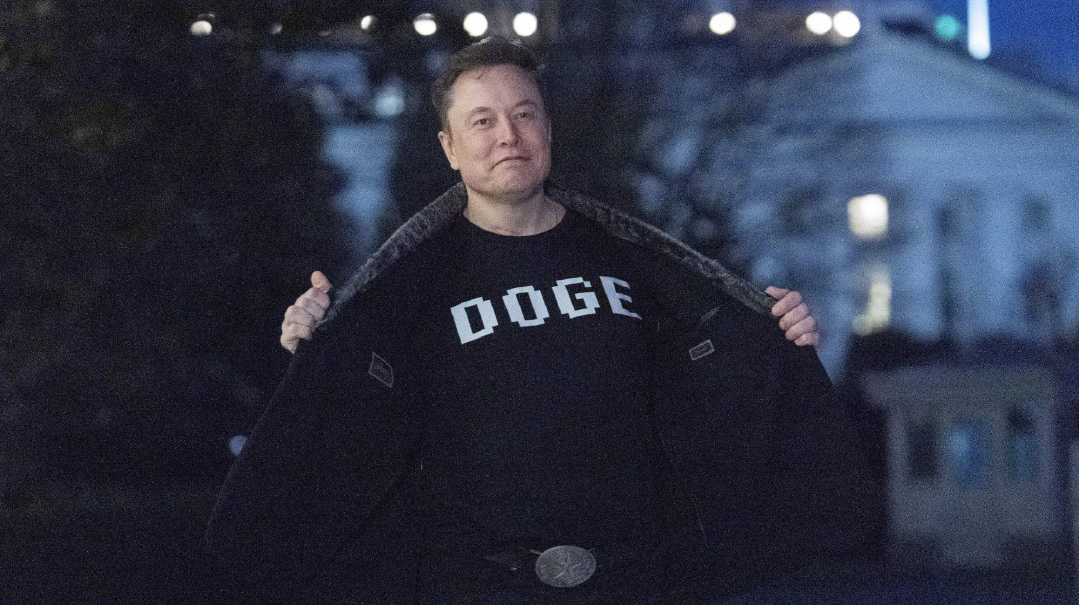What’s a Chainsaw For?

“No one either supports or opposes chainsaws; it all depends on what they are being used for”

Photo: AP Images
IF Vice President Vance had a brain trust, Oren Cass would be an indispensable member. Vance wrote of Cass’s book, The Once and Future Worker, “Oren Cass has accomplished the rare feat of... saying something truly new and innovative about our society... A brilliant book. And among the most important I’ve read.”
Any search for Oren Cass and J.D. Vance will turn up numerous entries about Cass as the leading thinker behind Vance’s “economic populism,” focused on providing more well-paying jobs for American workers. A July Politico headline read: “A JD Vance-aligned think tank is stirring the pot with conservatives,” a reference to Cass’s American Compass think tank.
But the thing about brain-trusters is that they are likely to have minds of their own. In a highly partisan world, in which so many are either totally supportive of whatever President Trump does or totally dismissive, Cass is still capable of calling balls and strikes as he sees them.
In a February 24 Unherd piece, “Why DOGE will fail: There isn’t an easy solution for anything,” Cass summarizes what is good and what is not. He begins with the metaphor of chainsaws. Chainsaws are great for cutting up trees; less so for brain surgery. Thus, no one either supports or opposes chainsaws; it all depends on what they are being used for.
For the Department of Government Efficiency to succeed, it must first identify what kind of problems are amenable to simple solutions and what are not, while ever mindful of H.L. Mencken’s warning, “For every complex problem, there is a solution which is clear, simple, and wrong,” Knowing the difference between the different level of problems is the essence of wisdom, and wisdom generally requires experience.
To date, DOGE has certainly turned up many government expenditures for which there is a simple solution: end them. USAID grants to foreign countries designed to spread the Biden administration’s woke agenda to faraway lands certainly fall into that category.
But a single rule — let us say, cutting expenditures and the number of employees by a certain percentage across government departments and agencies — is bound to fail or wreak havoc. Such cuts first require understanding what each department does and what is the significance of its work.
Michael Lewis wrote an entire book, The Fifth Risk, about the significance of such unsung agencies as the National Weather Service and the cost of their neglect in the first Trump administration. Similarly, a reduction in the number of air traffic controllers, at a time when multiple reports of overworked, stressed-out air controllers have raised concerns about air traffic safety, would seem singularly ill-advised. So would cutting the FAA’s budget, at a time when American air traffic equipment lags far behind that of Canada, and is in immediate need of update.
At a tense cabinet meeting, Transportation Secretary Sean Duffy was reported to have sharply criticized Elon Musk for plans to cut the number of air traffic controllers. Eventually, President Trump resolved the argument by enunciating a rule that final say on cuts rests with the department heads and not with DOGE.
Some problems are easy and amenable to presidential edict in the form of executive orders. I would put a federal ban on funding of school districts that mandate allowing biological males to compete in women’s sports or to frequent places designated for women, out of privacy concerns in that category. Similarly, ending DEI bureaucracies throughout the federal government.
And I hope that Lee Zeldin at the Environmental Protection Agency succeeds in clawing back the $27 billion passed out under President Biden’s misnomered Inflation Reduction Act to a variety of nonprofit organizations and consortiums without proper internal controls or standards.
Of that amount, according to the Free Press’s Madelaine Rowley (“A $20 Billion Slush Fund — Paid by You to Progressive Nonprofits,” March 4), $20 billion went to nine nonprofits heavily staffed and run by veterans of the Obama and Biden administrations at very generous salaries, between the 2024 election and Trump’s taking office. One former EPA official likened that to “tossing gold bars off the Titanic.”
But, writes Cass, “most intractable problems in government are hard problems,” and they involve much more than just choosing policy. They involve reforming processes and making painful tradeoffs. One hundred billion dollars in improper government payments a year, for instance, is a huge amount of money, but those improper payments do not happen because there is a large lobby in favor of them, but, in part, because there is a tradeoff between preventing fraud and ensuring that citizens receive the payments to which they are entitled in a timely fashion. In short, it cannot be solved by just doing the opposite of whatever has been done before.
Cass gives a good example of a case in which across-the-board edicts have likely made government less efficient rather than more so: the DOGE edict to fire all government employees with “provisional” status. Those are sure to be the youngest and more recently hired. But the youngest cohort of workers are also the most likely to have experience working with artificial intelligence.
The problem, Cass suggests, is that neither Elon Musk or the “young Turks” he has hired to assist him, many of them barely out of their teens, have the wisdom to distinguish between the easy and the hard questions.
Wisdom would dictate not trying to do everything at once, and without proper study or balance. The question is whether Elon Musk is having too much fun to heed that sage advice.
(Originally featured in Mishpacha, Issue 1054. Yonoson Rosenblum may be contacted directly at rosenblum@mishpacha.com)
Oops! We could not locate your form.







